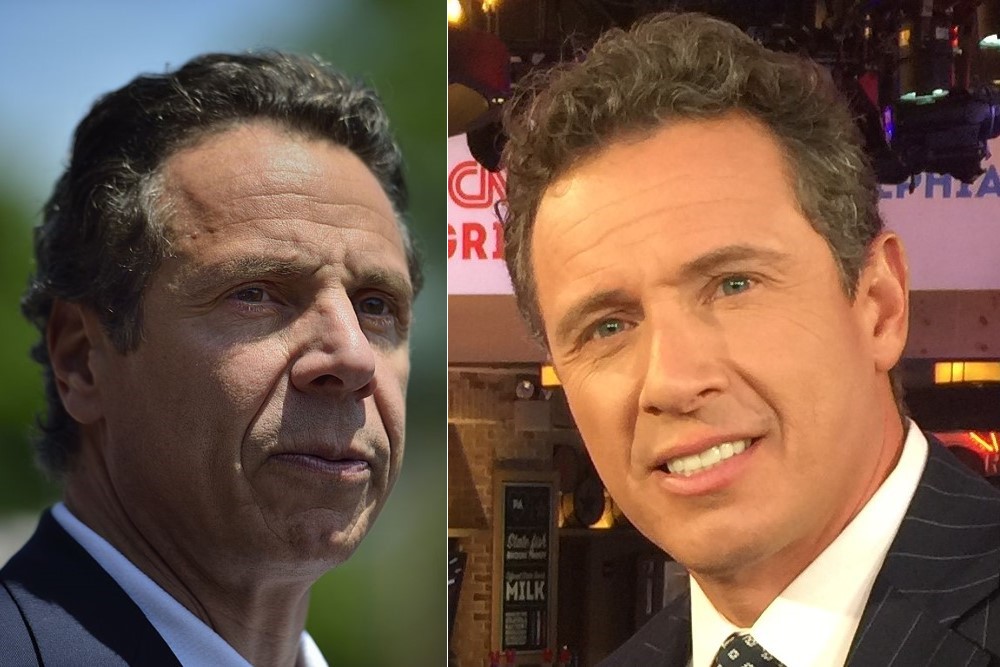Chris Cuomo, Brotherhood, and Morality

On Thursday, CNN suspended its prime-time news anchor Chris Cuomo “indefinitely, pending further evaluation.” By Saturday, he had been terminated. The move comes shortly after documents revealed a “cozy and improper” relationship between Chris Cuomo and the political aides of his brother, Andrew Cuomo, former governor of New York.
Andrew Cuomo recently resigned as governor amid numerous allegations of sexual misconduct. Shortly before that scandal became public, Chris Cuomo held regular friendly, even comic, interviews with his brother. He also reportedly held “strategic discussions” with his brother about how best to respond to the allegations. A few days ago, the New York attorney general’s office released more documents showing Cuomo used media sources to uncover information about those who were accusing his brother of sexual misconduct. This triggered CNN’s move to suspend the anchor. CNN claimed these documents showed “a greater level of involvement in his brother’s efforts than we previously knew.”
Even before these latest revelations, many of Cuomo’s colleagues regarded his behavior as violating journalistic ethical standards, which aim to maintain a healthy barrier between those who report and those who are being reported upon. “This is a no-brainer,” says Mark Feldstein, chair of the broadcast journalism department at the University of Maryland and former staff member at CNN. “Journalism Ethics 101: journalists should never cover family members. It’s a glaring conflict of interest.” Cuomo himself now calls the discussions with his brother and his aides “inappropriate” and a “mistake.”
There is little dispute that Chris Cuomo’s behavior violated journalistic and impersonal ethical standards in seeking to help his brother. But, and here is the philosophical puzzle, was he, at the same time, also being a good brother? Cuomo explained that he was “family first; job second” and singularly committed to “be there for my family, which I must.” If Cuomo was simply being a good brother, does this mean that being a good brother can conflict with being moral? In such a case, which should we choose? Looking for answers to these questions forces us to take sides in a philosophical debate about the bounds of morality.
As the joke has it, a friend will help you move, but a good friend will help you move a body. But at the heart of the joke is a serious point. Sometimes, as Cuomo has discovered, the demands of morality seem to conflict with the demands that our personal relationships put on us.
Some think that this apparent potential for conflict between the demands of morality and those of our personal relationships is just an illusion. Regarding friendship, Aristotle thought that good friends take an interest in their friends’ moral development. We want our friends to be better people — the best versions of themselves. A good friend wouldn’t help you to indulge in immoral behavior or to avoid facing the consequences. A good friend would encourage you to face up to what you ought to do. We might think the same about Cuomo. Perhaps a good brother would not help his sibling to navigate a series of sexual misconduct allegations. Perhaps, then, Cuomo was being both unethical and a bad brother. On this view, there is no real conflict of values. The standards of both morality and brotherhood condemn Chris Cuomo’s behavior.
But this Aristotelian approach is arguably an overly moralized conception of friendship, or, in our case, brotherhood. Contrary to the Aristotelian view, it certainly seems possible for good friends to not particularly care about each other’s moral development. Imagine two kids who enjoy getting into mischief together. The Aristotelian view implies that they simply aren’t good friends, but that doesn’t seem correct. So perhaps the Aristotelian view is false and there really is a tension between the demands of morality and those of our personal relationships.
So, we’re back to the idea that there is a genuine conflict between being a good brother and a morally good person. Let’s examine that apparent conflict more closely.
We generally think morality is impartial. When something is the moral thing to do, it’s the moral thing to do for everybody. At least, this is what the two most famous moral theories — Kantianism and Utilitarianism — claim. According to Kant, we’re acting morally so long as we’re treating peoples’ humanity not merely as a means, but (also) as an end. According to Utilitarianism, we’re acting morally so long as our actions produce the best outcome of the available options. These are both wholly impartial theories of morality. Everyone counts the same as everyone else. It doesn’t matter who the person in front of you is, or what your relationship with them is; morally, you just treat them the same as anyone else!
On the other hand, the demands of friendship and family are clearly not impartial. If you are a good friend, the fact that your friend is your friend means you will treat her better than you would a stranger. We often think we shouldn’t treat our friends or family just like we treat everyone else. So, the conflict between morality and friendship/family can be thought of as a conflict between acting impartially and morally, on the one hand, and acting partially, in favor of our friends and family, on the other.
Here is another reason to think there is, contrary to appearances, no real conflict between morality and brotherhood. We might be going wrong in thinking of morality as totally impersonal. Maybe the partial demands of friendship and family are genuine moral demands too. This idea is called “moral pluralism.”
Moral pluralists agree that the impersonal values that morality generally focuses upon — such as promoting general well-being — are important moral values. But they don’t think they are the only important moral values. According to the moral pluralist, Cuomo didn’t face a conflict between the demands of brotherhood and those of morality. Instead, the value pluralist would say Cuomo faced a conflict within morality, between two important moral values — of impersonal morality and of brotherhood. This provides a very different picture of Cuomo’s dilemma.
On this moral pluralist view, Chris Cuomo had good moral reasons to try to help his brother. He also had good moral reasons to maintain his distance and journalistic independence. This leaves us with a difficult question; which should he have done? Here, the moral pluralist faces the task of weighing these reasons against each other to form an overall, all-things-considered judgment.
The kind of dilemma Cuomo faced, between taking particular care of those you are closest to or living up to impersonal ethical standards, is not rare. The same (apparent) conflict can be found in choosing whether to donate to an effective charity or buy a Christmas present for someone you love, or choosing whether to let your friend copy your answers in a school test. These apparent dilemmas force us to confront some particularly tricky philosophical puzzles — puzzles about the nature of friendship, of familial bonds, and which values we include in our conception of morality.




